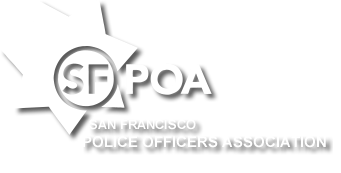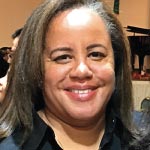Law enforcement has dramatically changed over the last ten years. From the impact of social media and the 24-hour news cycle, to the growing demands on police departments to be the first responder to nearly every social challenge a community faces—police work is fundamentally different and evolving constantly. Through these rapid changes, street cops keep doing their job and they adapt as best they can to meet the ever-moving expectations placed on them.
Despite our critical role in policing, however, it is nearly universal that the street cop is never included in the process of crafting solutions to the very public safety and social issues we are asked to address. We are ordered what to do, but never asked how it should be done.
This is why over the past two years, the SFPOA has worked to help build and grow two new organizations that have a focus of addressing public safety issues from the perspective of the rank-and-file: The United Coalition of Public Safety (UCOPS) and Protect California. The drive behind both organizations is to be proactive and to provide solutions to the challenges we face in the field. In short, in a break from the perception of police unions, we’re telling people what we are for as opposed to what we are against.
UCOPS is a coalition of law enforcement associations from across the country. From Seattle to New York City to Omaha to San Francisco and beyond, the law enforcement associations that represent rank-and-file officers are working together to improve how we interact with our own communities as well as the public at large.
In May, UCOPS teamed with the State of Hawaii Organization of Police Officers, a member organization on looking at the innovative solutions the Honolulu Police Department utilizes to a common problem America’s cities face: homelessness, substance abuse and mental illness. We’re learning how HPD balances an approach of compassion with firm but fair enforcement. There are good ideas being implemented that we can advocate for in our hometown—as opposed to waiting for our chiefs or elected officials to tell us how to do our job.
Here in California, law enforcement associations took the initiative to address the push by anti-police activists to change use of force laws in a way that put law enforcement and the public at risk, by proposing our own solutions to the issue. As an early member of Protect California, we pushed for stronger police polices on use of force and an overhaul of training for police officers in areas such as safely resolving mental health crises. We stood up to groups like the ACLU who purposefully distorted facts about policing and fanned the flames of discontent aimed at police. Rather than just saying “no,” however, we provided a solution for our elected leaders to meet their goals: reduce uses of force while ensuring the safety of the public and officers. An amended AB 392 (use of force) and SB 230 (policies and training) are well on their way to passage.
Whether its homelessness, mental illness, or promoting economic opportunities for residents who live in neighborhoods overly impacted by crime, SFPOA and Protect California will be pushing for policies, funding and ideas that will make our state safer.
What’s the upside for the officer in a patrol car to all this? Safer conditions on the street that will lead to lower crime rates, and policies and tactics that are feasible for the cops who are actually doing the work.
By building strong coalitions, we can protect our profession and help steer it into the future.

